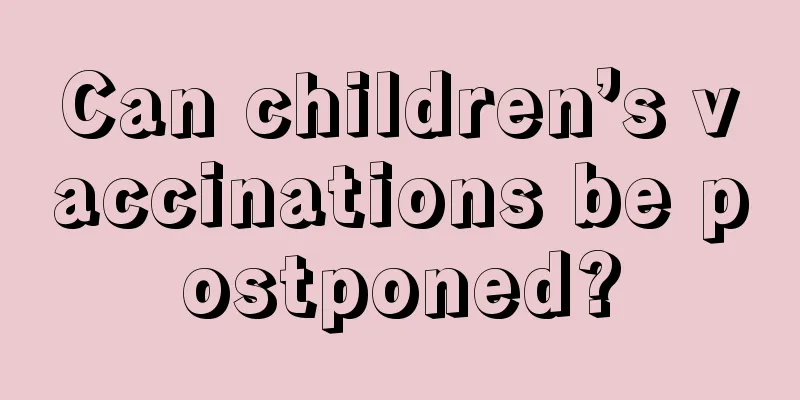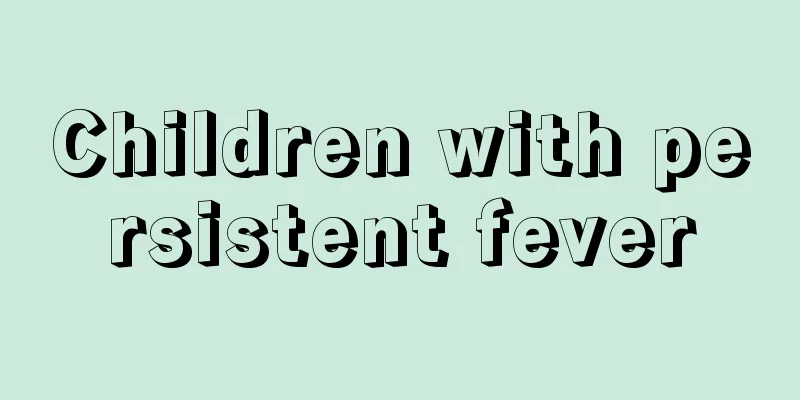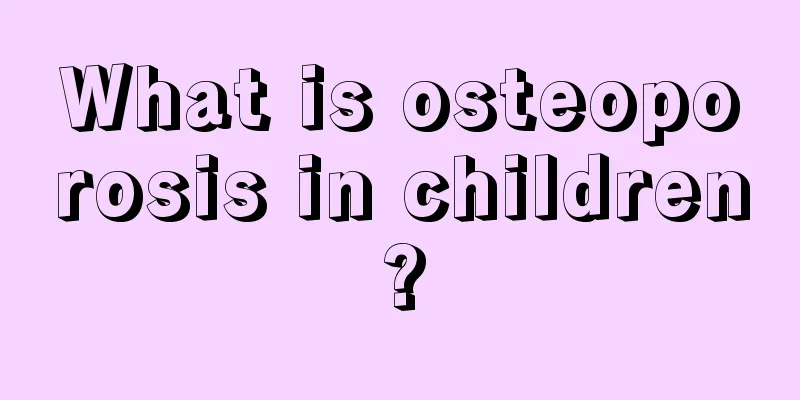How to treat children's enteritis?

|
It is actually quite common for children to suffer from diseases such as enteritis. The main factors causing the disease are generally related to lifestyle habits or bacterial infection. If children's enteritis is not treated in time, it will have a certain impact on the child's eating and digestion. Enteritis can be treated with antibiotics, dietary intravenous drips, etc., while maintaining good nutritional intake. 1. Antibiotics: Bacterial enteritis can be treated with antibiotics. Because bacterial resistance to drugs is gradually changing, medications must be taken under the guidance of a physician and according to the physician's prescription. Some patients stop taking medication as soon as their symptoms improve. As a result, they develop chronic colitis due to insufficient medication, which does not heal over time and affects the nutrition and health of children. 2. Diet: When diarrhea is severe, feeding should be temporarily stopped to allow the gastrointestinal tract to rest. After the condition improves, you can start by feeding the baby with rice soup or diluted skim milk, and then gradually increase the concentration. Do not fast for too long to avoid malnutrition. In addition, pay attention to vitamin supplementation. Certain sick children and those suffering from allergic diarrhea need special dietary treatment and should seek the guidance of a doctor. Diarrhea in children may seem very common, but it is also the disease with the highest mortality rate. Therefore, patients with severe cases should not take medicine on their own and must seek medical advice for treatment and prescription. 3. Intravenous drip: The most dangerous thing about diarrhea is dehydration. Children are more susceptible to dehydration than adults. In severe cases, the body weight may be dehydrated by more than 1/10, and the mortality rate from dehydration can reach 30%. Replenishing water can reduce the mortality rate to below 5%, so the best treatment for diarrhea is intravenous drip. When the disease is serious, the intestines are swollen and cannot absorb water. The child will have diarrhea every time he drinks water. In this case, the child must receive intravenous treatment and supplement with saline and glucose. When acidemia is severe, alkali solution should be supplemented, and potassium should be supplemented when there is a potassium deficiency. In addition to replenishing nutrients, water, electrolytes and water, the drip also has an antidiarrheal effect. When all antidiarrhea drugs are ineffective, intravenous drip is the best antidiarrhea treatment. |
<<: What is the reason why children have eye mucus?
>>: What are the symptoms of autism in children?
Recommend
Is it harmful for girls to be weaned late?
We all know that breastfed children have high res...
How many months is appropriate to breastfeed?
Nowadays, more and more people are beginning to a...
What to do if your child suddenly has cramps
Nowadays, with the continuous improvement of livi...
Factors causing menarche in girls
Today we are going to focus on and discuss the is...
How many months should babies start adding complementary foods?
When babies are young, they need to pay attention...
What are the nutritional breakfast recipes for primary school students?
Now the living standard is gradually improving, s...
What are the symptoms of nasal polyps in children?
Nasal polyps are a common nasal disease, but in f...
What can children use to wash their faces to make them whiter?
Parents all hope that their children have fair an...
How to correct stuttering in children?
Children are very curious, so when they see other...
What should I do if my child has a fever or bacterial infection?
Since infants and young children have just been b...
What causes a child to cough even when he doesn’t have a runny nose?
People often cough. From a physiological point of...
How to apply for a child's medical insurance card
It is inevitable that children will get sick and ...
What should we pay attention to when caring for newborns?
After the joy from the moment the baby is born, w...
Avoid these minefields when getting vaccinated, otherwise the consequences will be serious!
The health of your baby is the top priority for e...
What causes children to have bloody diarrhea?
Diarrhea in children is a common condition in lif...









